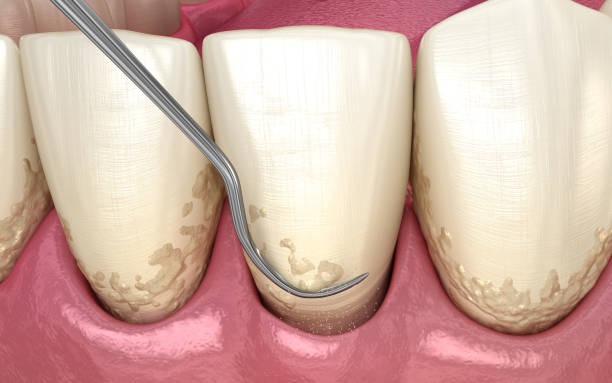Is it really just a routine cleaning, or is something more serious going on? This question often comes up when a dental specialist suggests a deep cleaning. Scaling and root planing go beyond a standard cleaning. It targets the root cause of gum issues, helping restore oral health before the condition worsens.
Gum disease often starts quietly with mild irritation that can turn into serious infection beyond what brushing can fix. If untreated, it may cause tooth loss and affect overall health. That’s why deep cleaning is important to address these hidden issues early. A periodontist may use this procedure not for cosmetic results, but to stop the damage and give the gums a chance to heal.
Recognizing Early Warning Signs of Gum Disease
Deep cleaning is often needed when signs of gum disease appear. Swollen gums, bleeding, bad breath, or recession may seem minor, but they can point to deeper issues. Bacteria and tartar build up below the gumline, leading to irritation and pocket formation. These pockets trap even more bacteria, creating a cycle that a regular dental cleaning cannot break. At this stage, deep cleaning may be recommended to disrupt this process and prevent further progression.
Understanding Deep Cleaning
The process of deep cleaning is thorough and targeted. Scaling involves removing hardened plaque and tartar from the teeth and below the gumline. Root planing smooths the roots of the teeth, which helps the gums reattach and reduces the risk of bacteria returning.
This treatment is typically done over one or two visits, depending on the severity of the condition. Local anesthesia may be used to keep the patient comfortable during the procedure. After treatment, some sensitivity or discomfort is normal, but the benefits to gum health can be significant.
Understanding the Role of Deep Cleaning in Gum Treatment
Deep cleaning plays a crucial role in treating early to moderate gum disease by removing bacteria, plaque, and tartar from beneath the gumline, where these hidden deposits can irritate gum tissue and lead to infection and damage if left untreated. By eliminating this buildup, deep cleaning reduces inflammation, supports gum healing, and helps shrink the pocket depth around teeth, making it more difficult for bacteria to accumulate and cause further harm. Often considered the first step toward healthier gums, this treatment is essential for restoring and maintaining gum health.
Advantages of Early Gum Disease Treatment
Timely deep cleaning can stop gum disease from worsening. Once the infection is under control, gums can reattach to the teeth, and inflammation decreases. This helps prevent bone loss and protects against the need for more invasive treatments later on.
Keeping gum disease under control also supports better overall health. Several studies have shown links between chronic gum inflammation and systemic conditions such as diabetes and heart disease. Addressing the issue early may support broader health improvements.
Advanced Care for Gum Health
In cases of moderate to severe gum disease, a general dentist may refer patients to a gum health specialist. These professionals have advanced training to handle more complex cases, offering both non-surgical and surgical options depending on the need. Deep cleaning often forms the foundation of this care, setting the stage for any further treatment if necessary.
Gum health is not something to ignore. With proper care, even advanced symptoms can be managed effectively. Deep cleaning plays a key role in this recovery process. When recommended by a periodontist, it’s not just an option; it’s often the most strategic choice for long-term oral health. Staying proactive with treatment can make a lasting difference in preserving natural teeth.






